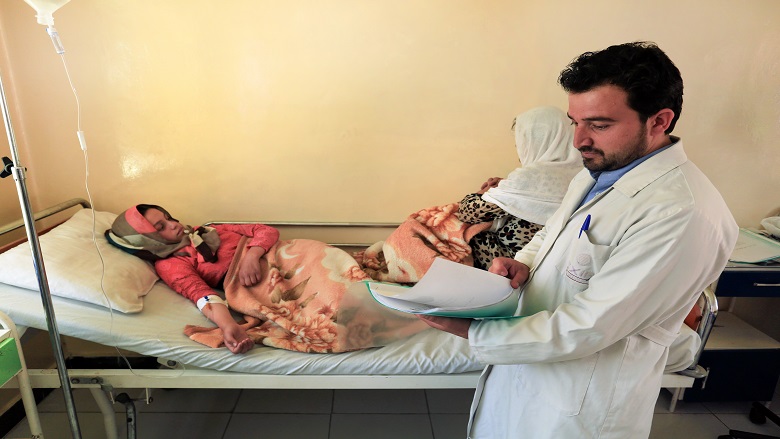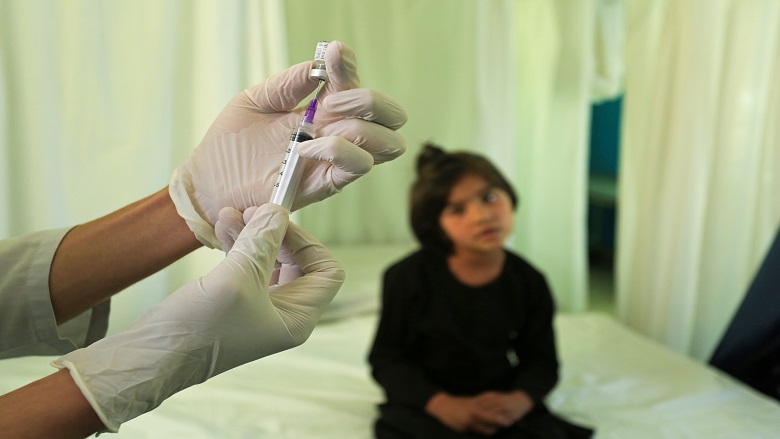ROKHA DISTRICT, Panjshir Province – The boiling water, spilled while making the morning tea, burnt Homira’s foot so badly that her husband had to rush her to the hospital. Two female nurses are busy treating her in the emergency section of Rokha District Hospital (DH). She lies on the bed, her face in pain, groaning softly. A doctor gives her an injection to reduce her pain.
“We come here any time there is an illness or an emergency,” says Homira, 42, as she leaves the Intensive Care Unit (ICU) after receiving treatment. She seems happy as she limps down the hall. “When we come to the hospital the doctors and nurses treat us very well and the services are good,” adds Homira, a mother of four.
Inside the hall there are many men and women waiting their turn to be examined by the doctor. Abdul Saeed, 35, is with his wife, who has come for an antenatal examination. He talks about the quality of medicine they have received from the hospital and how it has helped them to get well quickly. “The doctors and the hospital are meeting most of our needs,” he says. “We are thankful for the free, high quality medicine, since the price is too high in the market and we cannot afford it.”
Saeed, who is from Dara Abshar district, is at the Rokha DH because of the public awareness campaigns conducted by voluntary Community Health Workers (CHWs). “I found out about the benefits of coming to the healthcare center six years ago, and now I bring my wife to Rokha DH to the midwifery section,” he says.


